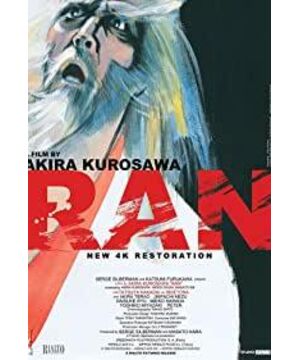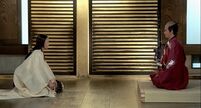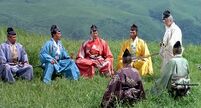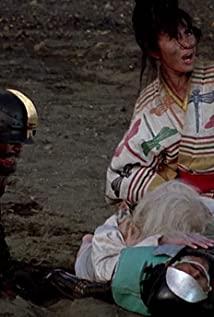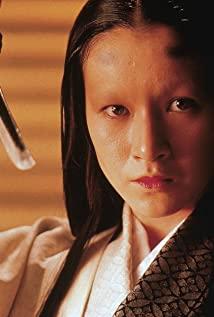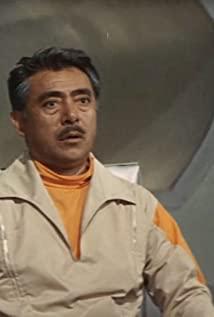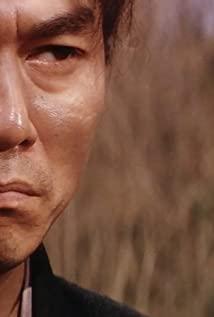Akira Kurosawa is good at depicting those things deep in the characters' characters. In Rashomon, what he shows is the kind of selfishness and self-planning character in universal human nature; in "Ran", what he discovers is something in a person's character. I remember hearing about Shakespeare's four tragedies before, saying that Shakespeare's four tragedies do not lie in the outcome of the plot, but in the characters' characters. For example, when Hamlet met his unsuspecting uncle in the chapel, he thought that he should not kill his enemy with despicable means at the feet of God in the chapel. The tragedy of Xiuhu lies in his stubbornness, even to the point of stubbornness, which led to his disobedience to his advice and eventually the fate of a lost dog. And Dalang still lacks ambition, anyway, the death of the two brothers is related to women; Saburo is a person who is more comedy in "Ran", but he still has his tragic character, if he was not stubborn at the beginning Contradicting her father, she will not be expelled from a writer, and it is very likely that the future will be avoided; A Feng, in fact, in a strict sense, she is not a tragedy of character. As the number one villain in this film, all her actions are It was premeditated and calculated. Besides, for the villain, it can't be called a tragedy. If you insist on finding one, I think "revengeful" can be used as her character tragedy.
Another person I have to talk about is Ahmad. Ah Mo has the lightest role in this drama, but in my opinion, he is the soul of the whole drama. First of all, Ahmad's tragedy is her Buddha's heart. Buddha's heart saves her, keeping her alive under the tyrannical Hideto and not having her eyes gouged out like her younger brother Tsurumaru; however, it is inevitable that the Buddha's heart compels her to take the risk to see her maid and eventually. led to her death. Akira Kurosawa wants to tell us through "Ran" that human beings kill for their own interests, fight for pain instead of happiness, and seek death instead of tranquility. This is what General Hirayama told Kuang Ami in front of the bodies of Xiuhu and Saburo. But if this is the only case, then Ah Mo's appearance in the play is unnecessary; but in Akira Kurosawa's film, the appearance of each person has an impact on the story: like "Rashomon" with 7 people It shows the ugly face of selfishness in human nature. What Kurosawa wants to tell us with the help of Ahmad is that even the existence of a Buddha cannot stop the killing among people. With a Buddha in his heart, he cannot avoid the fate of death; just like Ahmad, who has a Buddha's heart, he will eventually be killed and decapitated by Erlang's men. The Buddha is an imaginary thing, and if he does not exist, there is no way to stop the killing among human beings; and even if he does exist, there is nothing that can be done about it.
The narrative style of Rashomon is a bit like Boccaccio's Decameron. One is the Black Death rampant, the other is the heavy rain. This is a bit too far. I can't tell whether I am writing a film review about "Ran" or "Rashomon". In short, it is a film directed by Akira Kurosawa. But I want to talk about something else. For example, I suddenly thought of Karen Mok's "Cloudy Day": cloudy day / in a room with no lights on / let all thoughts settle bit by bit / is love a spiritual opium or the end of the century The boring pastime of / I really love the phrase "Is love a spiritual opium or a boring pastime at the end of the century". I thought of watching "Buffalo 66" again, and then I went further and further to say that Vincent Gallo's new film "Tetro" was also directed by Coppola, and I really wanted to see it. MD should stop, and if he thinks about it, he doesn't know where he's going.
View more about Ran reviews


